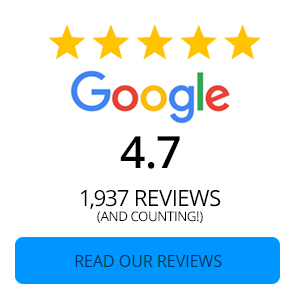Retirement seems a long way away when you've just started your first job. As they say, time flies, and the years will pass more quickly than you think. Setting up a retirement account earlier rather than later is often for the best, as it gives your money the most time to grow, thanks to compounding interest. One thing you may not know is the ins and outs of actually setting up your account. Consider this retirement 101, what you need to know to get your account up and running.
Types of Retirement Account
If you're like the average worker in the US, it's likely you'll being dealing with a 401k, 403b or an individual retirement arrangement (IRA). There are other types of retirement accounts out there, and the IRS has a good rundown of the options available. Typically, if you work for an employer that offers a retirement plan, you'll have a 401k or 403b. The plans are similar, with the big exception being that 403b are offered by schools and non-profit organizations while for-profit companies tend to offer 401k plans.
You can open and put money into an IRA if you earn income from work, but don't have a retirement plan from your employer. People with retirement plans at work can also open IRAs, but there are some additional rules when you have a work plan and an IRA. The maximum amount you can contribute to an IRA each year is considerably lower than the maximum you can contribute to a 401k or 403b.
No matter which type of account or accounts you have, the big advantage of them is the tax break. 401k's, 403b's and traditional IRAs are all tax-deferred accounts. That means you don't pay income tax on the amount you put in now. Instead, you pay the tax when you actually withdraw the money.
You do pay tax on the money you put into the other type of IRA, a Roth IRA. The trade-off is that you don't pay any tax on the amount when you withdraw it in retirement. Depending on where you work, you might have access to a Roth 401k, which means you pay tax on your contributions at the time, but not when you withdraw them. According to Bloomberg, many larger employers offer Roth 401k's, but not many employees take advantage of them.
Getting Yours Up and Running
If you're going with an employer sponsored retirement plan, such as a 401k, it might be that your company automatically enrolls you in the plan, picks an amount to withhold from your paycheck each period, and even picks your investments, as US News and World Reports noted. While putting your retirement savings on auto-pilot can seem like the easiest option, it might not be what works best for you. Before you get your account set up, find out about the following:
- Types of investments. One of the more common auto-pilot investment options is the target date fund, which starts investing in more conservative options as you approach retirement age. While common, it's not the only option available to you. Take a look at the funds and stocks available in your plan, ask questions about them, and choose the ones that work best. Remember that investments aren't insured, so there is a risk of having your account's value decrease, even if a stock or fund performed well in the past.
- Fees. Fees can really eat into the amount your retirement accounts actually earn for you. Some funds charge management fees for the privilege of taking care of your money for you, some charge sales fees when you actually buy or sell a stock, some charge overall administration fees. Find out what fees are connected to your account and what you can do to keep them as low as possible.
- Traditional vs. Roth. The big advantage of traditional IRA or 401k plans is the tax break you get in the year you make the contribution. The downside is that you pay tax in retirement. If you expect your tax bracket to be lower in retirement, this can work out well for you. The advantage of Roth plans is that you pay tax right away, and aren't responsible for paying it on the original amount, or on any earnings in the account, in retirement. Roth plans also tend to have fewer early withdrawal penalties and allow you to use the money for reasons aside from retirement, such as paying for college or purchasing your first home.
- Employer Match. Companies often match the contributions employees make to a 401k plan. Find out if yours does, and how much it will match. If you can afford it, try to contribute at least up until the employer's match, to take advantage of bonus, free money for your retirement.
Setting money aside for retirement is definitely a noble goal. But, don't forget to save for other needs, too, such as an emergency or bigger financial goals, including buying a home. Coosa Valley Credit Union offers savings accounts, share certificates and IRAs that allow you to set money aside for the future. Contact us today to learn more about our account options!

